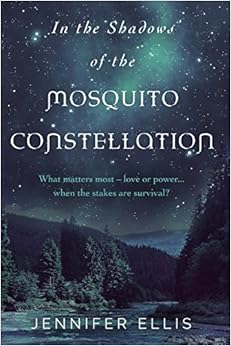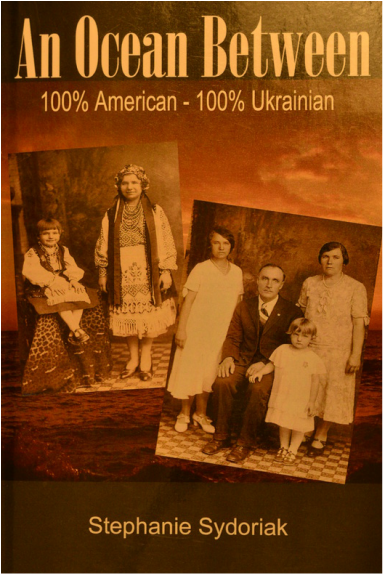If you've read the
Telepath Chronicles, the second volume of the Future Chronicle anthologies produced by
Samuel Peralta, then you've certainly enjoyed
Peter Cawdron's story #DontTell. I confess that I wasn't familiar with Peter's work, but after reading his story now my Kindle is stuffed with his books, starting from his latest release,
My Sweet Satan, whose premise is mind blowing: a remote Saturn moon; an unmanned probe; one message: "I want to live and die for you, Satan."
How can you resist a premise like that?
Welcome to Chimeras, Peter!
EEG:
What spurs your love for science and how does it inspire your work?
PC: For most of my adult life, I was tragically antiscience, not in an overt way, but with a bias toward creationism. Science was inexplicable, something to be tolerated, but not trusted. I was sincere and well meaning, but wrong. I would often hear preachers talking disparagingly about Charles Darwin, often in the same breath as comments about Adolf Hitler. I knew Hitler had waged war on the world, brought untold suffering to Europe and killed millions of soldiers and civilians alike. Charles Darwin, though, was a scientist, a naturalist and from the depictions I'd seen, seemed somewhat soft spoken and gentle. There was a disconnect there that never really sat right with me and left me wondering.
To someone on the outside, creationism probably seems pretty silly and somewhat simplistic. For me, it was contradictory. I could see a variety of different Christian groups offering what seemed to be equally plausible explanations for cryptic sections of scripture. They all had the same approach. The Bible is right, everything else must be shoehorned to fit. Only they couldn't agree between themselves on which shoehorn to use.
I found myself feeling somewhat like a hypocrite badmouthing Charles Darwin while never actually having read a single word he wrote. One day I stumbled across an old, ragged copy of On the Origin of Species in a garage sale and picked it up for two dollars. I started reading and found myself highlighting section after section as Darwin methodically explained the course of reasoning that led him to the theory of Natural Selection. Far from being on par with the Nazis, I found Darwin's writing to be remarkably honest and refreshing.
As much as I loved On the Origin of Species, The Descent of Man was even more remarkable, and I came to appreciate science as the only viable means of explaining the world around us. But science doesn't stop with explanations, once we understand the science we can apply it to improve our quality of life.
Science is not a sideline, background curiosity in our lives, it is the bedrock foundation of modern life. In the 1850s, Ignaz Semmelweis was ridiculed for introducing the washing of hands for medical students visiting his wards, even though mortality rates dropped from 20-30% down to less than 5%. But the lessons weren't learned. Semmelweis was ridiculed and driven insane. Barely a decade later almost two hundred thousand Americans died of preventable infections during the Civil War. When the polio vaccination was introduced in 1957, the number of reported cases dropped from 58,000 to 5,600 in twelve months. The smallpox vaccine is credited with saving over half a billion lives, and yet we face an increasing backlash from antivaxers. I cannot imagine growing up in a world without refrigeration, antibiotics, vaccines or basic hygiene, and yet in some parts of the world these appalling conditions still remain. It seems to me that science is a modest hero, transforming our world for the better, but the job is barely half done.
Having been so ignorant for so long, I'm keen to do all I can to encourage scientific awareness, and so a common theme in all of my books is that of science and knowledge being the hero.
EEG:
Your personal discovery of science is simply fascinating! So, if I may say so, you are a Darwin convert, something to be proud indeed! Speaking of Darwin and evolution: many of your books explore the future of the human species. What do you see realistically happening to humans in, say 1000 years from now (supposing we survive all the mess we're making now!)?
PC: The most remarkable thing about the time we live in is how rapidly we are embracing change. In terms of evolutionary time, the scientific revolution we've undergone over the past five hundred years is the bat of an eyelid. Mammal species form and diverge over tens of millions of years. We are changing nature and, indeed, domesticating Homo sapiens and dozens of other species at a rate that is absurdly quick given the 3.8 billion years life has existed on Earth. I don't mean to sound pessimistic, but we need to be realistic about the change we are forcing on our planet. We're driving species extinct at an alarming rate.
A thousand years from now, races will probably not exist in anything like the form they do at the moment. They'll be more culturally based than based on physical characteristics, simply because of how globalization is forming a homogenous genetic mix, probably resulting in a racial type closer to our current asian form than european. But the pity will be the lack of biodiversity among other species on the planet.
Climate change is a contentious issue, but humans have been changing their environment for tens of thousands of years—cutting down forests and growing farms. When the Americas were first settled, bison numbered sixty million, now there's less than a hundred thousand, but we've got lots and lots of cows, pigs and chickens (even if their lives are short lived). It sounds silly, but this is a serious problem. Indigenous animals are displaced by those that taste great when deep fried. The UN estimates there are currently 19 billion chickens in the world, at the expense of numerous other species that have been driven to extinction or to dangerously low numbers. And a lack of biodiversity isn't just an academic concern, there are very real consequences if we get to the point of runaway extinction because the biosphere collapses. It's happened before. It's up to us to stop it from happening again.
The point is, we're changing our world at an alarming rate. Climate change is just one more injury we've inadvertently inflicted on what may be one of the most astonishing planets in the universe.
To those that deny climate change, I say, hey, so did I. Don't be close minded. The same scientific method that brought you the computer you're looking at right now has led us to understand the very real impact carbon emissions are having on the atmosphere and the detrimental impact a rise in temperature has for life on this planet. It's time for us to grow up and take responsibility for our actions.
EEG:
How are your stories typically born?
PC: Coming up with some crazy idea is generally the easy part. It's the execution that is tough, building a quasi-credible plot with realistic characters.
I love hard science fiction, which essentially means there's no magic hand-waving to get characters out of trouble. In the movie Star Trek: Into Darkness, there's a scene where Kirk is on the Klingon home world and has desperate need of some engineering advice. He flips open his handheld communicator and talks with Scotty in real-time back in a bar on Earth, even though the two worlds are separated by dozens of light years! As much as I loved that movie, that scene was lazy writing. I'd use a situation like that to force Kirk into thinking laterally. Sure, he'd bemoan the absence of Scotty, but that would make him dig deeper for answers, and THAT makes for a better story.
EEG:
You just published My Sweet Satan: can you tell us a bit about this book?
PC:
My Sweet Satan is not satanic. It's not a horror. It's a thriller set around the idea that First Contact is not going to be intuitive or easy.
We struggle communicating with people from different countries and cultures. We can't hope to hold a conversation with a dolphin, an octopus or a cuttlefish, and yet all of which display remarkable problem solving skills. That makes me think that First Contact is going to be fraught with difficulty and the potential for misunderstandings. My Sweet Satan is about how a First Contact mission could go horribly wrong, but as with all my writing, it ends on a high. I think it's pretty good, but I'm probably a bit biased :)
EEG:
What are you currently working on and what's next on your publishing agenda?
PC: My two girls (12 & 14) asked me to write stories for them, so I'm venturing into some young adult fiction with my next two novellas: Things We Left Behind & Mister Fluffy Bunny.
Things We Left Behind explores the world of a teenaged girl struggling to cope with the zombie apocalypse. It's a story of hope against insurmountable odds.
Mister Fluffy Bunny might sound like a children's story book, but it's about a young girl in a Mexican orphanage caught in the middle of a drug war.
I think teens and adults alike will enjoy these stories. They're a departure from my normal hard science fiction, but are thoroughly enjoyable nonetheless.
EEG:
Aw, that's so nice that they asked you. My kids are the same age as yours and after telling them that no, they can't read my adult thrillers, I, too, decided to write something appropriate for their age. Except so far it looks like they are still more interested in my adult thrillers than the YA I'm writing. Go figure.
If you were to travel on a spaceship, what's the first place you'd go see?
PC: Earth.
Seriously, we have such an astonishing planet with an incredible array of diversity, from the Himalayas to the Sahara, from the arctic circle to the rainforests of South America. We live in the jewel of the crown. I'd love to see the rings of Saturn, the great spot on Jupiter, the ice volcanoes of Enceladus, but as breathtaking as they would be, I don't know that you can top Earth. Without exception, the Apollo astronauts that walked on the Moon all marveled at the view of Earth, and that's quite profound when you think about it. These men had the opportunity to walk on another celestial body, but they marveled at the small blue sphere we call home. I think our wanderlust will take us to the far flung corners of our solar system and beyond, but Earth is without a doubt the #1 destination and we're already here!
EEG:
Best answer ever. :-)
Thanks so much Peter for chatting with us today!
PC: Thank you for inviting me to be a part of your blog.
You can find Peter on
Twitter and
Facebook and a full list of his novels is on
Amazon.
















.jpg)

